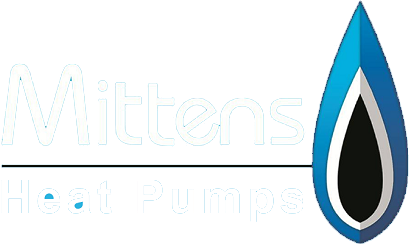Improving Energy Efficiency to your Home
Table of Contents
- 1 - Improving Your Home’s Energy Efficiency
- 2 - Energy Efficiency Ratings
- 2.1 - Coefficient of Performance and SCOP
- 2.2 - Heat Pump Type
- 2.3 - SCOP
- 2.4 - SEER
- 2.5 - Coefficient of Performance and Heat Pump Efficiency
- 2.6 - Improving Heat Pump Efficiency
- 2.7 - Clean the Filters
- 2.8 - Replace the Refrigerant
- 2.9 - Keep the Pump Clean
- 2.10 - Regular Maintenance
- 2.11 - Choosing the Correct Heat Pump can be Critical for Optimising Your Home Output
- 2.12 - Air Source Heat Pumps
- 2.13 - Geothermal Heat Pumps
- 2.14 - Why Air Source Heat Pumps Lose Efficiency in Cold Weather
- 3 - SEER and how it Affects Your Home
- 4 - Heat Pumps Efficiency Comparison
- 5 - What is the Best Heat Pump for you?
Improving Your Home’s Energy Efficiency
One of the key advantages of heat pumps is that they are a form of heating which is extremely energy efficient. The efficiency of ground and air source heat pumps can surpass 300% because they transfer heat instead of producing it. Maintaining this efficiency level, however, is necessary to make the heat pumps a worthwhile investment.
The efficiency of heat pumps depends on how hard they will have to operate to keep the room temperature comfortable in your home – the lower the flow temperature (the temperature at which water passes through your radiators), the higher the efficiency.
Our Guarantee
- Over Six Years Experience
- Unrivaled Experience
- An Exceptional Service
- Unbeatable Value For Money
- Industry-approved Scaffolders
- A Full Range of Heat Pumps Services
- Professional, Reliable and Diligent
- 100% Safety and Satisfaction
Energy Efficiency Ratings
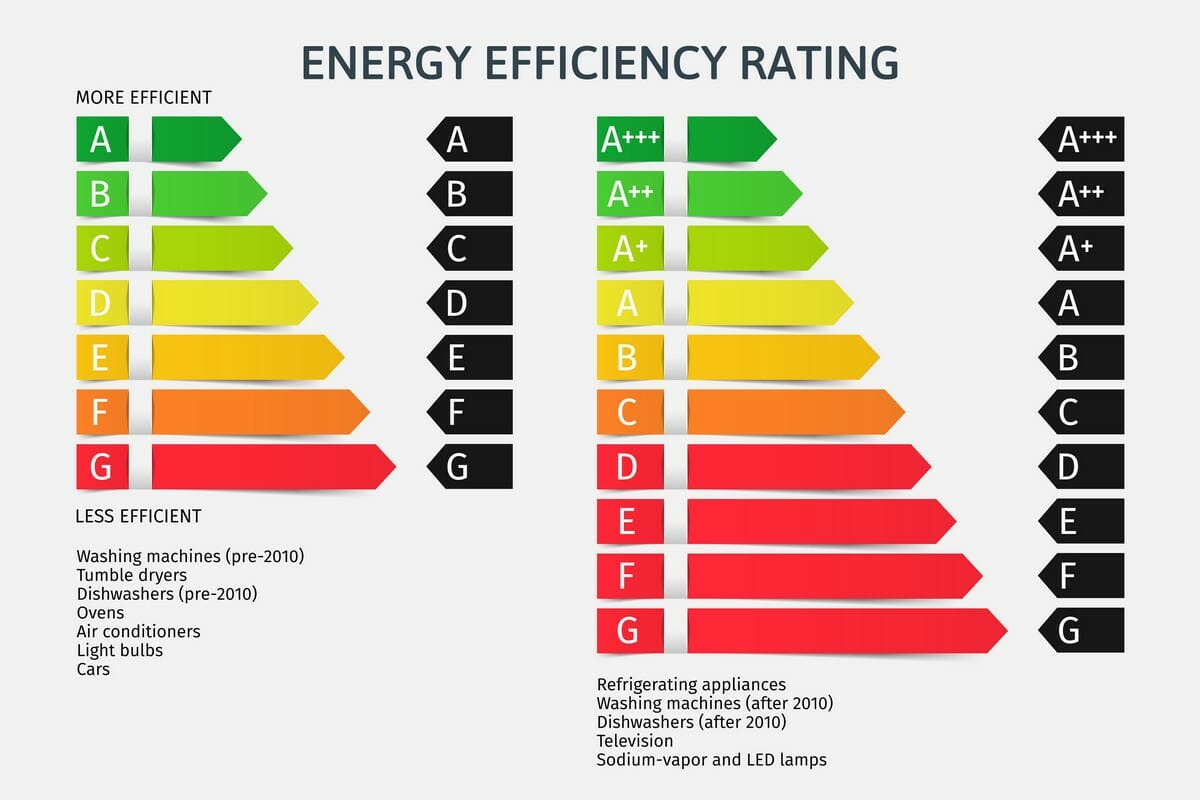
EPCs are carried out in England, Wales, and Northern Ireland by EPC assessors or ‘Domestic Energy Assessors’. Before providing you with the EPC, the EPC assessor will perform a brief survey of your house. The house is then put on a colour-coded scale from A to G, with A having the cheapest fuel bills as it is the most efficient.
EPC scores for your house will depend on:
- The amount of energy per m2 used
- The carbon dioxide emission level (given in tonnes per annum)
The EPC will be valid for 10 years once issued – if your EPC is older than that, you will need to get a new EPC issued before you can sell or rent out your house.
We Are Also Available to Offer Heat Pumps Related Advice
Coefficient of Performance and SCOP
The most basic energy-efficiency metric of any heat engine is COP or Coefficient of Performance. It is very vital in the comparison of fridges, heat pumps and air-conditioners. The COP is the ratio of how much usable heat an HVAC system can produce with a specified amount of energy input. It essentially tells us how much heat we can generate with every watt of energy that we pay for.
In comparison, a 1000W heat pump with a COP of 2 will boil less than 6 gallons per hour of water. Keep in mind that in both cases our electricity bill is the same. It’s quite obvious that having a COP 3.5 water heater is far better than having a COP 2 water heater.
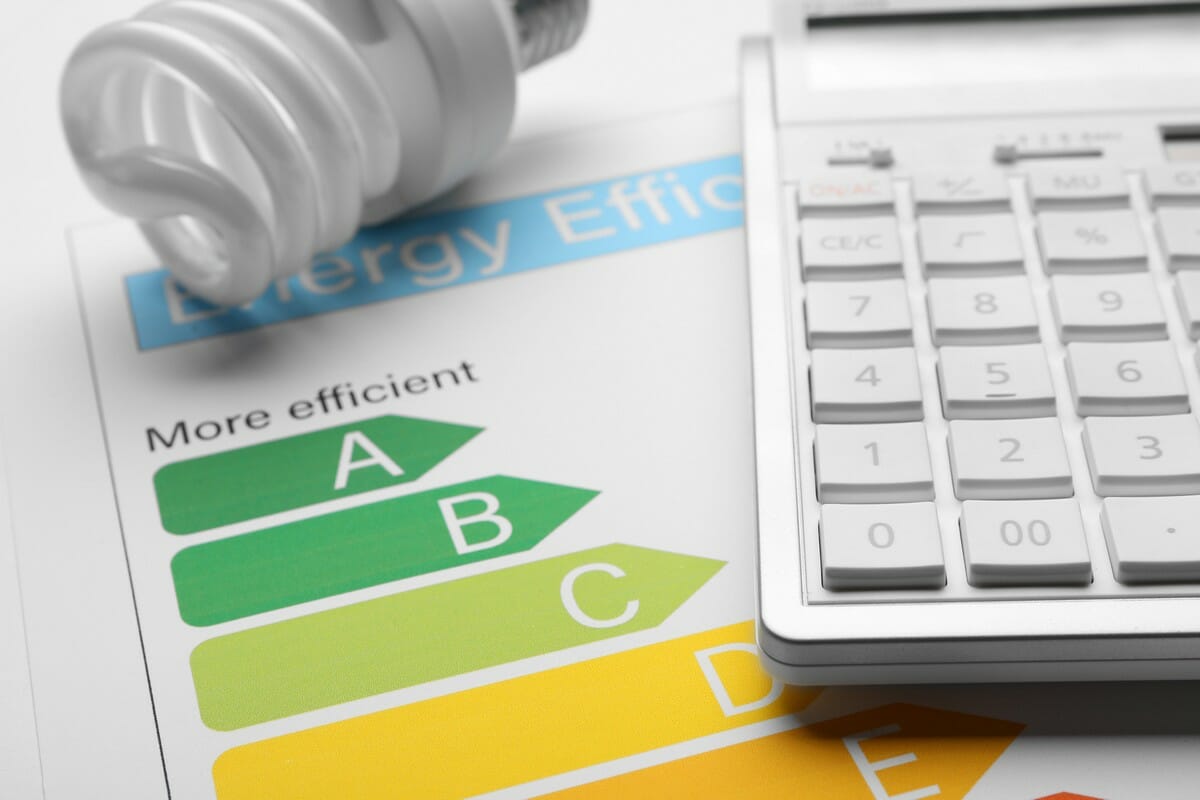
Heat Pump Type
SCOP
SCOP (Seasonal Performance Coefficient) is a new mean measurement showing how effective the heat pump is on an annual basis. This gives you a realistic, season to season picture, which makes it much easier to compare heat pumps (and models from the same manufacturer) across producers.
It gives the efficiency a more accurate picture than the COP value. You can, therefore, use the SCOP figure to specifically compare the different efficiency of heat pumps with each other a lot better. This will help you to decide which pump is the most efficient according to its SCOP value.
SEER
SEER stands for Seasonal Energy Efficiency Ratio, which is a measure of the energy efficiency of your system’s cooling component. This ratio is calculated by taking a normal cooling season (i.e., summer) total cooling output and dividing it by the amount of energy consumed by that cooling unit during the same time period. The higher the SEER level, the more energy-efficient the heat pump’s cooling ability is.
We Are Also Available to Offer Heat Pumps Related Advice
Coefficient of Performance and Heat Pump Efficiency
“Efficiency” usually is a contrast between output and input. A relatively small input is considered efficient when it produces a relatively large output. Typically speaking, this relation of output to input is the best way to look at heat pump efficiency, too.
The COP is a unitless number since both output and input are in watts. The larger the COP, the more efficient the unit would be. If you have a heat pump with a COP level of 3.5, the heat pump will provide you with 3.5x as much power as the heat equivalent of the watts you put into it. In other words, you will get 3.5 watts out for every single watt you put in.
What makes the heat pump so efficient is the fact that you can get more out of the heat pump than what you put in. Highly efficient heat pumps today also mean homeowners can heat up their homes with heat pumps for less than they would spend on natural gas, widely considered to be the most efficient fuel on the market.
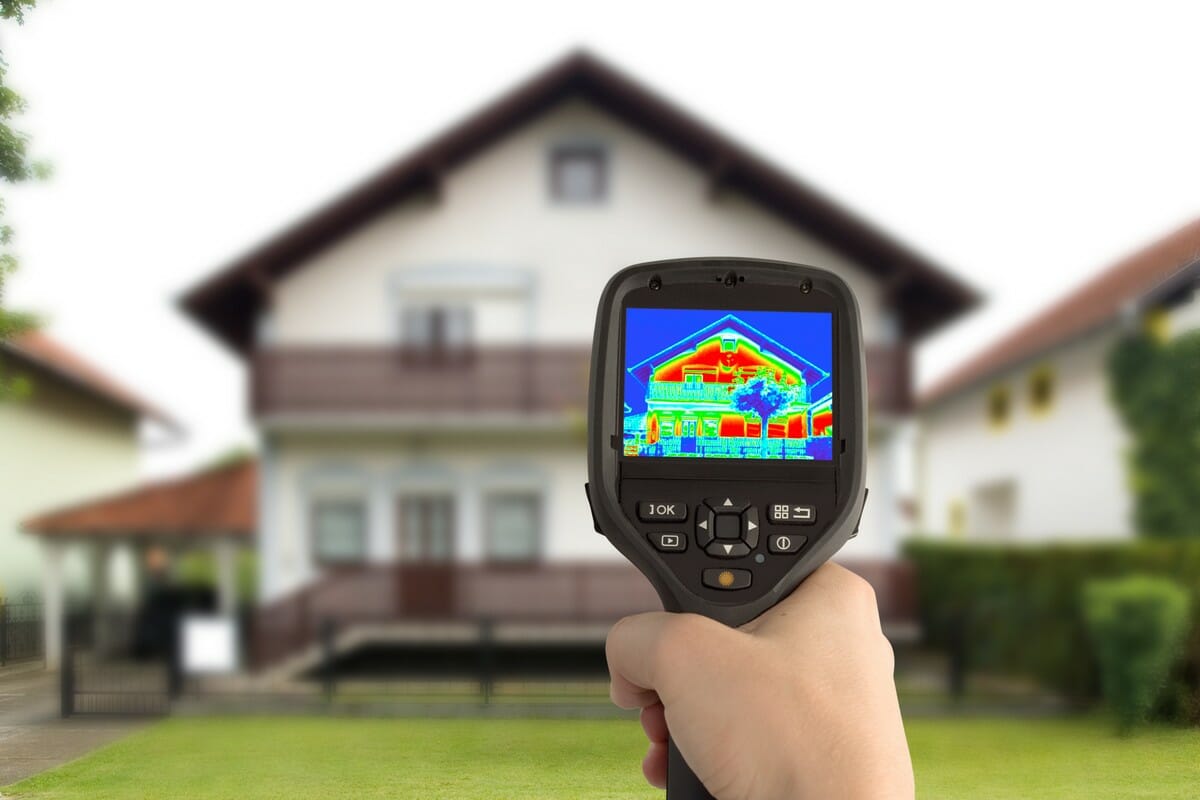
The heat pump switches its focal point in the summer. Instead of extracting heat from the outside air, it draws heat from the inside air, creating a negative temperature difference between the ambient air around the building and the inside of the building.
Improving Heat Pump Efficiency
A heat pump can transfer thermal energy from a cooler outdoor area into your home, or from a cooling system into your home’s ambient air. Heat pumps do not convert or generate heat. Defective or poorly installed heat pumps can be inefficient. A few actions you can take yourself, however, will help you to increase the efficiency of your heat pump and reduce your energy bills.
We Are Also Available to Offer Heat Pumps Related Advice
Clean the Filters
The cleanliness of the air filters which are attached to the ducts can affect the heat pump efficiency. Such filters take in the air that circulates in your house along with dust, dirt, and debris.
The air filter would allow less hot air to flow through the ducts if it is clogged, which can mean you have decreased air pressure and the heat will be at a lower temperature. Clean the filters by removing them from the ducts, and if necessary replace the screen material.
Replace the Refrigerant
The refrigerant which carries heat from the source to the compressor is another important part of the heat pump which can be maintained at home.
The liquid tends to evaporate and leak into spaces. To keep your pump running efficiently, measure the amount of refrigerant in your coil, and replace it according to the recommendations of the manufacturer.
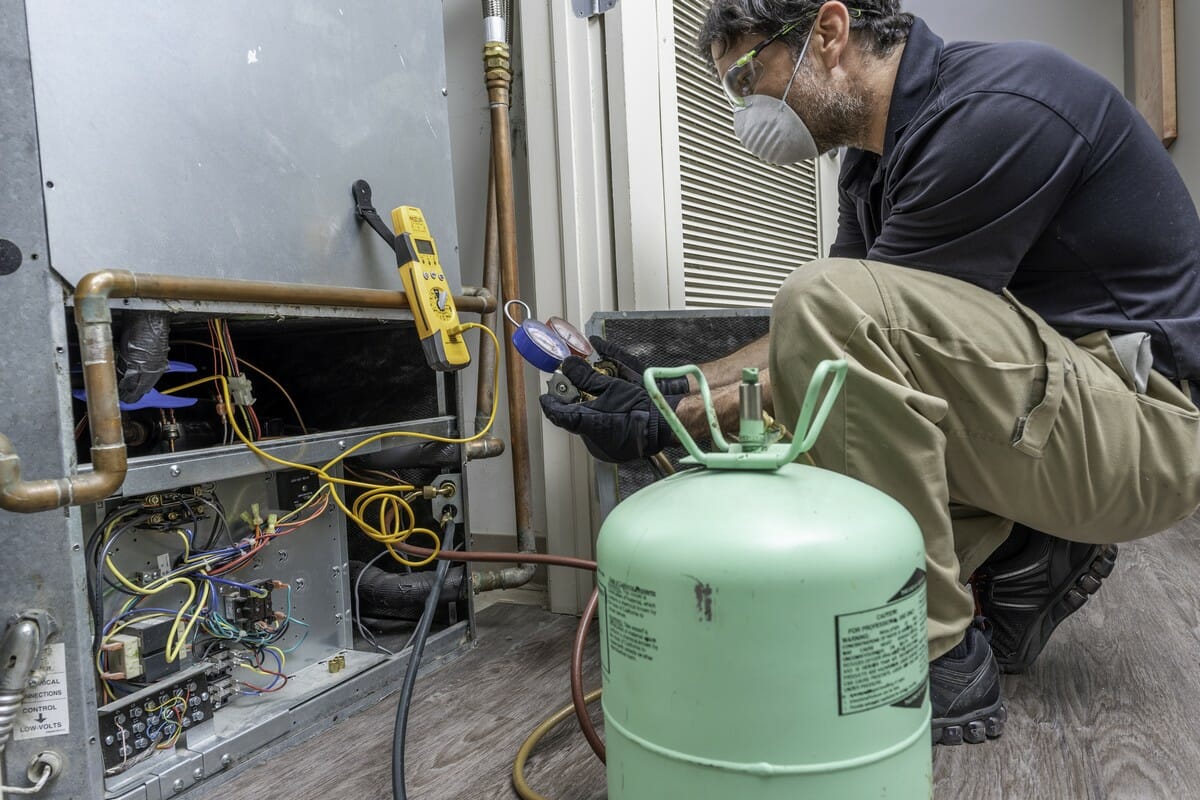
Keep the Pump Clean
It is recommended that you use a garden hose to clean the inside and outside of the pump to flush off any dirt and debris. Sweep and vacuum the device in order to clear any residual debris after hosing it down. It is also necessary to ensure that the coils are cleaned because dirt in the coils will reduce your heat pump’s output. While you’re cleaning the pump, adding more oil to your motor and belt is a good idea to ensure they operate properly and allow for an easy flow.
Regular Maintenance
Performing regular maintenance such as greasing the moving parts, cleaning up the pump and other simple tasks can help improve the efficiency of your heat pump. You should see a significant difference in the amount of heat your pump supplies to your house when you carry out these few, simple, home maintenance tasks.
Choosing the Correct Heat Pump can be Critical for Optimising Your Home Output
It is very important to make the right choice of a heat pump as it is vital when it comes to maximising your home’s heating efficiency. Two main types of heat pumps are available: Air source heat pumps and geothermal, or ground source heat pumps.
Air Source Heat Pumps
Air source heat pumps collect heat from the air around the equipment and release it into the air external to it. When cooling, the system uses the refrigerant’s heat-exchange properties to remove heat from the air around the indoor evaporator or air handler coil and then transfers it outdoors, where it is released into the outside air. The refrigerant absorbs heat from outside air while heating and transfers it into your house. Heat pumps can extract heat even from colder outdoor air, although when temperatures fall below 32 degrees, their efficiency is dramatically reduced.
A liquid refrigerant is circulated between the heat pump’s indoor and outdoor units during the heating process. This changes state from liquid to gas and back again as the refrigerant circulates. This also removes heat from the air around the outdoor device as the refrigerant evaporates to steam.
After being compressed to its liquid form, the gaseous refrigerant flows into your house. Within, it releases the heat found to the inside. The heat is then used to heat up your living spaces indoors.
Get in Touch With us for Your Heat Pump Hire Quotes
Geothermal Heat Pumps
Geothermal systems operate similarly, except that they use the soil as the source of heat capture or a nearby body of water. A collection of pipes, called the loop, are buried several feet below ground surface, sunk very deep in a vertical loop system, or immersed in a source of water.
Throughout the year, temperatures remain between around 45 to 60 degrees, just a few feet underground. Water or refrigerant circulates through the pipes, picking up the heat or removing it where appropriate.
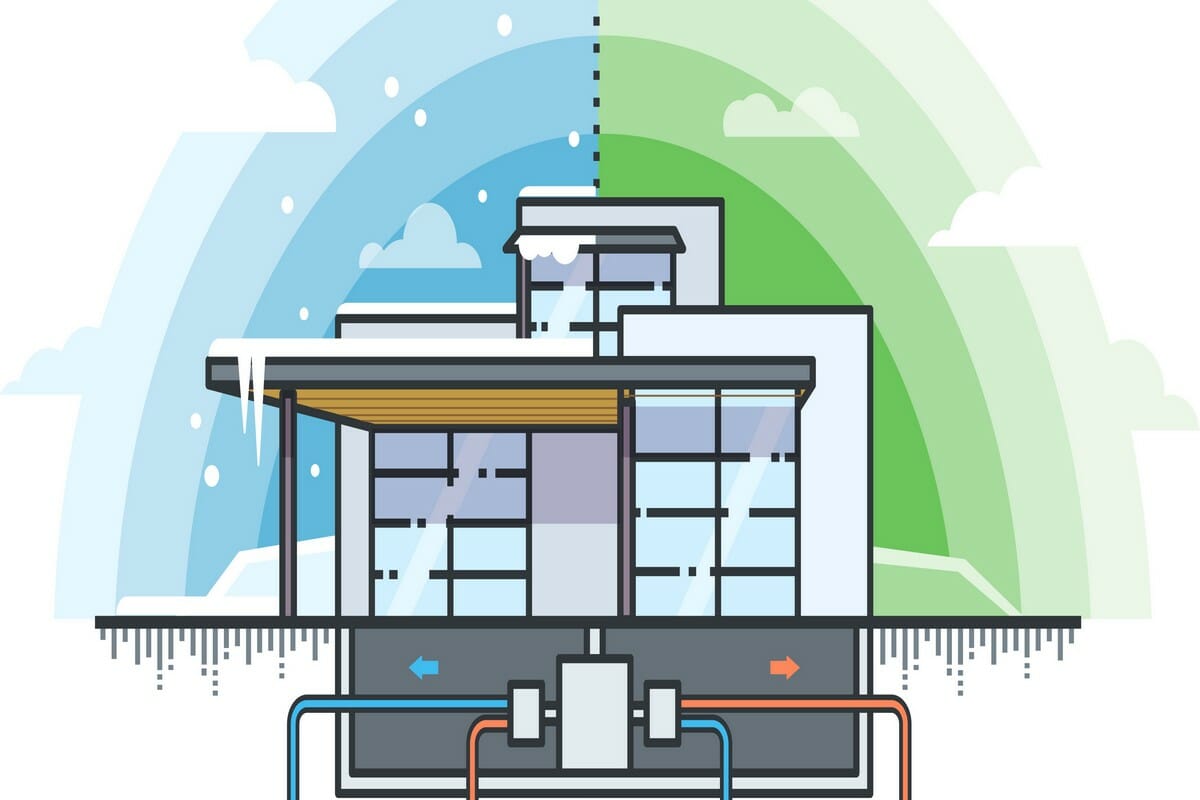
The initial investment in a geothermal system can be higher than other types of heating equipment, and the installation of the ground loop pipes would entail digging holes and trenches in your yard. A geothermal heat pump will normally pay for itself within five years, however, through the monthly savings and also with the government’s RHI scheme.
Why Air Source Heat Pumps Lose Efficiency in Cold Weather
The amount of heat that an air source heat pump will transfer to your home is heavily dependent on the outside temperature. When the outside temperature decreases, so does the average heat output of the heat pump in the air supply. An air source heat pump’s heating efficiency often appears to decline as the outer temperature decreases.
SEER and how it Affects Your Home
SEER is an acronym for Seasonal Energy Efficiency Rating. The first word “seasonal” is important to note as SEER is a measure of the efficiency of a heat pump measured over the entire cooling season. That means SEER takes into account all the year-round various demands on a heating and cooling system and gives you a more reliable efficiency score than other scores. The higher a heat pump’s SEER, the more effective it will be throughout the heating and cooling season.
Heat Pumps Efficiency Comparison
The Efficiency of Air Source Heat Pumps
An air source heat pump system will help lower your carbon footprint as it uses a natural, sustainable heat source – air. The amount of CO2 that you will save depends on the fuel that you will be replacing. For example, if you substitute electric heating rather than natural gas, the number will be higher. A heat pump often requires an additional power source, normally electricity, to drive the heat pump, so some CO2 emissions will still occur.
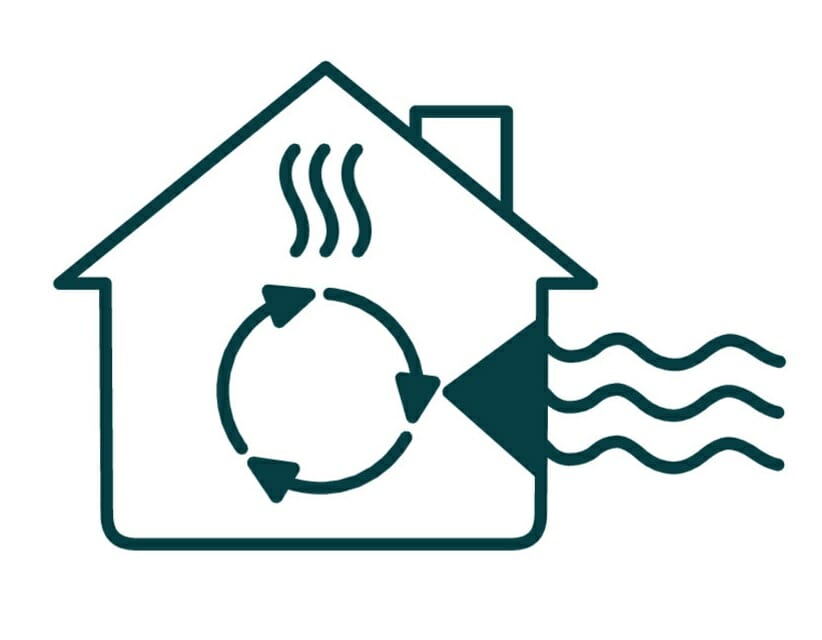
If the outside temperature is above 7°C a standard air source heat pump runs at a COP 3.2. This means the heat pump is effective at 320%: 3.2 kWh of heat is produced for each kWh of electricity used by the fans and the compressor. The greater the COP, the better.
Ground Source Heat Pump Efficiency
Modern heat pumping systems with ground source are very efficient. Three to four kilowatts of heat may be supplied to the building for each kilowatt of energy used to power the heat pump. The performance of a ground source heat pump system depends a great deal on the design and quality of the installation. Installation efficiency is improved by using ground solar recharge.
Ground source heat pumps extract heat from the ground and use it to produce hot water. Throughout the year the temperature on the subsurface stays about 11-12 degrees Celsius. You can take advantage of this readily available supply of thermal energy by burying pipes just a few meters below the ground, which is constantly replenished by sunlight. Sunlight contains plenty of thermal energy which heats up everything on which it shines. This means it retains a lot of heat and stays relatively warm even in colder months.
We Are Also Available to Offer Heat Pumps Related Advice
What is the Best Heat Pump for you?
Choosing a heat pump is a complex process. Remember it is important to seek professional assistance. The numerous models have very specific setups. For example, the choice is unlikely to be the same for a new and well-insulated construction and a boiler replacement in an existing home.
There is also the question of the home’s needs, such as heating, domestic hot water production, and cooling in summertime. There are also certain criteria to consider, such as the type of heating appliances you have (radiators, underfloor heating systems, heating units for convector fans). These are several important parameters to achieve an accurate sizing of the installation.
The Efficiency of Air Source Heat Pumps vs. Ground Source Heat Pumps
Ground source heat pumps are often considered the better of the two by many. Firstly, consider when you use hot water the most in your home during the year – the middle of the winter. It is then that the radiators are on at full whack and you have more hot baths and showers.
Secondly, consider how a heat pump works – it takes heat from either the air or the ground, which warms a ‘working fluid’, which is then compressed, thereby increasing the potential temperature.
Now, the greater the temperature of the ground or air, the less the heat pump needs to work to get it up to the required temperature. So in the summer, an air source heat pump will take in warm air, and the heat pump will have to do very little to heat the water to the required temperature.
Conversely, consider the winter months, when the demand for hot water is much higher. The air temperature at this time of year is much lower so the air source heat pump will have to work much harder to reach the required temperature.
The pipes run buried in the ground with a ground source heat pump system, so you don’t get the same fluctuations in temperature as you do above ground. This means that a comparative ground source heat pump can provide the same hot water requirements off lesser units of electricity during the winter when the air temperature is cooler than an air source heat pump does.
Get in Touch With us for Your Heat Pump Hire Quotes
Rating and Sizing Heat Pump Efficiency
Heat pump systems function as both a cooling and heating system for your home. Thanks to this, heat pump output ratings for heating and cooling functions are separate. The efficiency ratings are calculated using different metrics:
SEER – The Seasonal Energy Efficiency Ratio is the most commonly used performance metric for both cooling mode heat pumps and air conditioners
HSPF – Heating Seasonal Performance Factor is used to calculate the heating efficiency of a heat pump, specifically air source heat pumps
Keep in mind that the above ratings are used for typical heat pumps. You can also see EER (Energy Efficiency Ratio) to measure the cooling efficiency for geothermal heat pump systems and ductless mini-splits, and a COP (Performance Coefficient) for heating efficiency of geothermal heat pumps.
Sizing a Heat Pump
One of installers’ biggest problems at the moment is when a heat pump is incorrectly designed for the property it was installed in. In order to install the proper size of a heat pump, a measurement of the heat loss for the building must first be done. This can map out the property’s peak heat load. The same size house in London could have a different peak heat loss compared to one in Glasgow.
A properly sized heat pump means you have a system that provides efficient and cost-effective comfort for your home. And you will be able to claim the Renewable Heat Incentive (RHI) to cover the installation costs. A heat pump that is correctly sized means a system that will cost less to run, keep you warm, and will not cost the earth.
Maximise Efficiency of Your Heat Pump
Use Ground Source Heat Pumps when Possible
For these systems, the performance coefficient is significantly higher. Such pumps absorb heat from the ground and transfer it to a heating coil, or take heat from the coil and send it back to the ground in the other direction. The efficiency here lies in the fact that the ground is a very good heat conductor, thus making heat transfer much more efficient.
Boost Collection and Emission Points
The larger the emission and thermal energy collection surface area, the faster the heat pump can achieve indoor room temperature. Examples of this can be the construction of bigger radiators or the use of underfloor heating systems. Further heat is released thereby saving energy from the ground source heat pump. Greater radiator size can help heat up a room faster.
Use the Correct Flooring
Underfloor heating systems should be used in combination with solid floors. Such floors are better heat conductors and they can transfer more heat to the surrounding environment. Wooden and laminate floors are weak agents for transfer and can reduce heat transfer.
Increase Insulation in the House
Insulation represents an important energy-saving element. This is particularly important when it comes to window frames and doorjambs, as these areas are often overlooked and yet are significant heat loss sources. You should also insulate your attic and/or roof and you might consider using double glazing (or even triple glazing) for the glass in your windows.
Get in Touch With us for Your Heat Pump Hire Quotes
